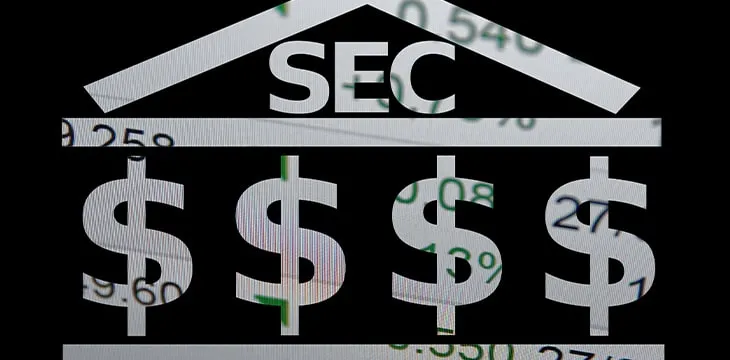|
Getting your Trinity Audio player ready...
|
The U.S. Securities and Exchange Commission (SEC) has instituted proceedings against American CryptoFed DAO LLC as it weighs suspending the registration and sale of the DAO’s two tokens.
In its announcement, the securities watchdog claimed that the DAO’s Form S-1 registration statement failed to contain the required information about its business, management, and financial condition. Further, the statement was materially misleading and was riddled with inconsistent statements about whether the DAO’s tokens, Ducat and Locke, are securities.
CryptoFed became the first legally-recognized DAO in the U.S. in May last year, leveraging the Wyoming DAO bill that recognized DAOs as a distinct form of LLC. In September, it filed Form S-1 with the SEC to register its two tokens as securities. Ducat was its stable token with unlimited issuance, while Locke was its governance token with a 10 trillion maximum supply.
Two months later, the SEC halted the registration, claiming CryptoFed’s filing was materially deficient and misleading.
In its latest statement, the SEC further accuses the DAO of failing to cooperate during the regulator’s examination of its registration statement.
“An issuer seeking to register the offer and sale of crypto assets as securities transactions must furnish the required disclosure information to the SEC,” David Hirsch, the chief of the Crypto Assets and Cyber Unit, stated.
“American CryptoFed not only failed to comply with the disclosure requirements of the federal securities laws, but it also claimed that the securities transactions they seek to register are not in fact securities transactions at all. The Enforcement Division is seeking to stop American CryptoFed’s registration to protect investors against misleading information,” he added.
The DAO refuted the claims, with its CEO Marian Orr accusing the SEC of failing to cooperate with the DAO to find a solution to the stalemate.
“The purported ‘deficiencies’ the SEC referred to were the lack of attributes inherent to securities. These are attributes that the two tokens of a decentralized blockchain-based CryptoFed DAO monetary system will never have,” she stated.
This dispute is the latest between the SEC and a digital asset company. While legislators have attempted to more clearly define who between the CFTC and SEC should oversee the industry, there has been little effort to outline how to classify a digital asset as a security. Even with the current bills in Congress, this classification is left to the sole discretion of the SEC. Whilst the CFTC could ultimately become the industry watchdog; the SEC will still have the power to categorize a token as a security and go after the people behind it.
Watch: The BSV Global Blockchain Convention panel, Law & Order: Regulatory Compliance for Blockchain & Digital Assets

 09-18-2025
09-18-2025 





